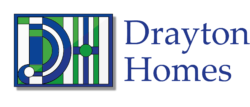Comparing New Home Builders
Recently a prospective client approached us to begin a conversation about building a new house. With construction drawings nearing completion and a property already procured, the young couple is well on their way!!Even though we may not ultimately build their new home — not every builder is a good fit for a customer and vice versa — we do still suggest a few things we hope every client will consider as part of their overall evaluation of each builder.
The first of the three is risk protection. Does the builder have commercial general liability (CGL) and workers compensation insurance? Some builders will have both, some will have CGL but not workers comp and yet others may not have either. So what’s the risk. A client — hiring a builder without CGL insurance — could be held responsible for any alleged wrongdoing or accidents caused by you or your work. Although Alabama homebuilders are not required to carry general liability, a new law requires builders to disclose to the client prior to construction. At least now clients will know what level of risk they are assuming with each builder. Same with workers compensation; it is not required of builders. But a worker who gets hurt on a build could go after a homeowners assets to get wages and medical expenses covered, especially if the contractor or subcontractor has no coverage in place.
A second item we advise clients to consider regards pricing. Is the quote a fixed cost-to-build or is it cost-plus pricing? The fixed price is just what it implies; you pay a fixed total amount — say $250,000 — based on a set of specifications and upon full payment the builder hands you a key to your new home. You know for certain what the house will cost you upfront per the contract and that number will not change. The optional pricing structure is cost-plus, meaning the client pays all the materials and labor costs plus the builder’s profit (either a percentage or a fee). The drawback is the builder provides an estimate for the job but any overages relative to the estimate will be borne by the client. Meaning the cost-to-build could end up costing the client a lot more than originally estimated.
Lastly, how strong do you want your house to be against storms and hurricanes? Do you want a house that merely meets the building code or do you want something more robust? For example, the FORTIFIED Home program is a set of superior construction standards that helps homeowners strengthen their home against severe weather. A home built and certified to one of the three FORTIFIED standards — Roof, Silver or Gold — will save a significant sum on your annual homeowners insurance premium. Does the prospective builder have a solid understanding of these FORTIFIED home building principles, construction practices and verification requirements? [1] While these are just a few of the many considerations to help select a builder for your home, they certainly rank high on any list. Be sure to protect your assets from risk exposure, ensure you do not overpay and provide yourself peace of mind knowing your home is built to last.
[1] Drayton Homes Inc is a FORTIFIED-Wise Professional

